Tungkol sa Pagtatanong
Ang UK Covid-19 Inquiry ay
- alamin kung ano ang nangyari sa panahon ng pandemya ng covid-19 sa UK
- pag-aaral kung paano maghanda para sa mga pandemya sa hinaharap
Ang Pagtatanong ay nahahati sa mga module.
Bawat modyul ay tungkol sa ibang paksa. Ang bawat module ay may:
- pampublikong pagdinig – mga kaganapan kung saan pinag-uusapan ng mga tao ang kanilang mga karanasan
- isang ulat
Bawat Kwento ay Mahalaga
Bawat Kwento ay Mahalaga ay isang paraan na tinitipon ng Inquiry ang mga karanasan ng mga tao sa pandemya.
Maaaring ibahagi ng sinuman sa UK ang kanilang mga kuwento sa amin. Hindi namin ginagamit ang mga pangalan ng tao.
Tinutulungan tayo ng mga kuwento na malaman ang tungkol sa nangyari, pagkatapos ay magpasya kung paano gagawin ang mga bagay sa ibang paraan sa hinaharap.
Maaaring magalit ka kapag nagbabasa at nagbabahagi ka ng mga kuwento. Narito ang isang link sa impormasyon tungkol sa pagkuha ng suporta: https://covid19.public-inquiry.uk/support–while-engaging-with-the-inquiry/
Mga rekord

Gumagamit ang bawat module ng ebidensya mula sa Ang bawat Story Matters ay nagre-record.

Ang bawat isa rekord ay isang buod ng mga bagay na sinabi sa atin ng mga tao.
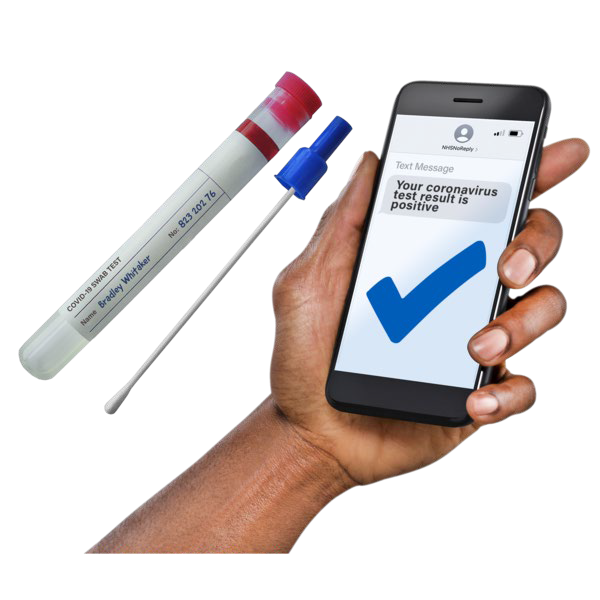
Ang dokumentong ito ay ang Easy Read na bersyon ng Subukan, Trace at Ihiwalay record, para sa Modyul 7 ng Pagtatanong.
Ang mga tala ng Every Story Matters ay nasa aming website: https://www.covid19.public-inquiry.uk/bawat-kwento-mga bagay/tala/
Pagsubok

Sinabi ng mga pagsusuri sa mga tao kung mayroon silang Covid-19 o wala. May mga testing center at home testing kit.
Bakas
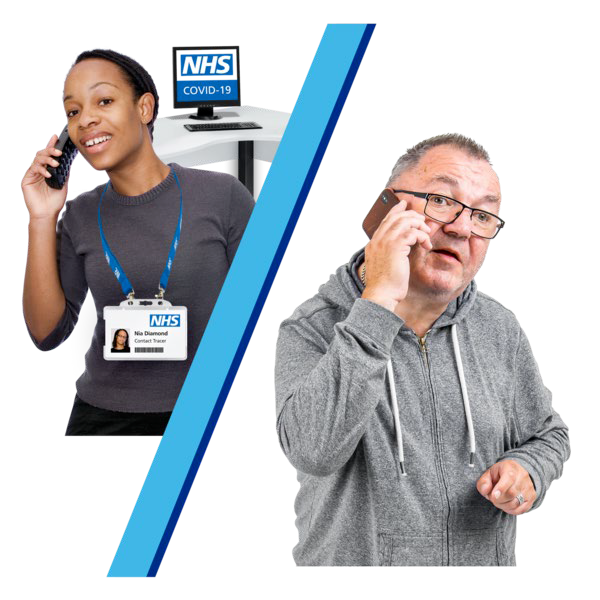
Tinanong ang mga taong may Covid-19 kung kanino sila naging malapit kamakailan.
Sinabi ng kawani ng NHS Test and Trace sa mga taong ito na nanganganib silang makakuha ng Covid-19.
Ihiwalay
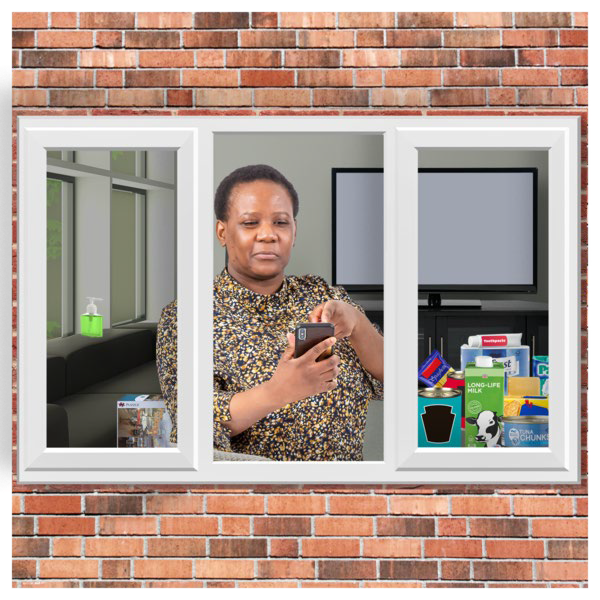
Ang mga tao ay kailangang manatili sa bahay, upang maiwasan ang pagkalat ng virus.
Mga kwento ng mga tao
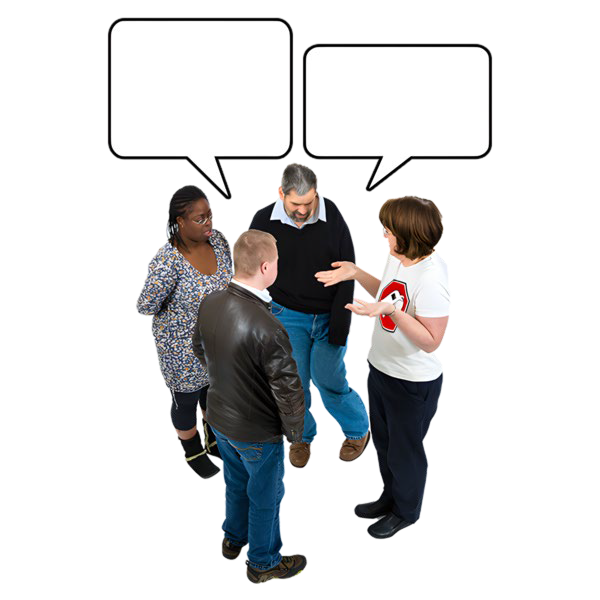
Ang natitirang bahagi ng buklet na ito ay nagsasabi sa iyo tungkol sa ilan sa mga bagay na sinabi sa amin ng mga tao Subukan, Trace at Ihiwalay.

Impormasyon
Mga bagay na nakatulong
Ano ang huminto sa pagsubok at paghihiwalay ng mga tao?
Mga multa
Mga karanasan ng mga grupo ng tao
Mga ideya para sa hinaharap
Impormasyon

Maraming tao ang nagsabi na naiintindihan nila kung paano Subukan ang Trace at Ihiwalay sa simula ng pandemya.
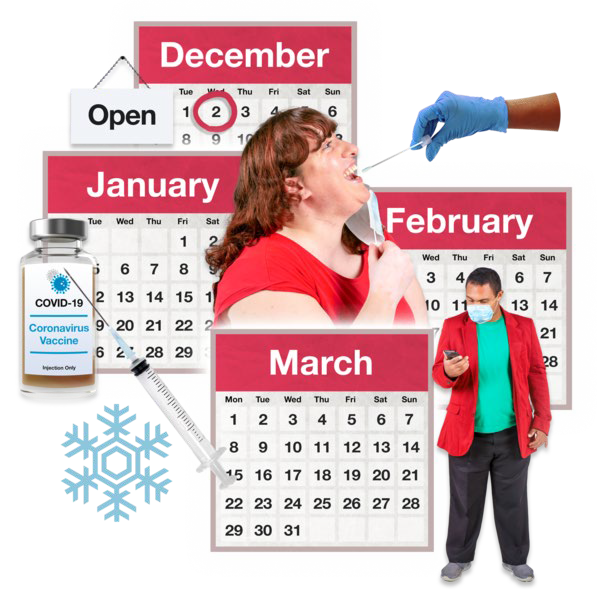
Ngunit pagkatapos ay patuloy na nagbabago ang mga patakaran. Ito ay nakalilito. Naging hindi sigurado ang mga tao kung ano ang gagawin.

Ang ilang mga tao ay natagpuan ito na mas mahirap kaysa sa iba. Halimbawa: mga taong hindi Ingles ang unang wika, at mga taong hindi gumagamit ng internet.

Maraming tao ang hindi alam ang tungkol sa suportang makukuha nila kapag sila ay nagbubukod sa sarili.
Mga bagay na nakatulong
Narito ang ilang bagay na nakatulong sa mga tao Subukan, Trace at Ihiwalay:
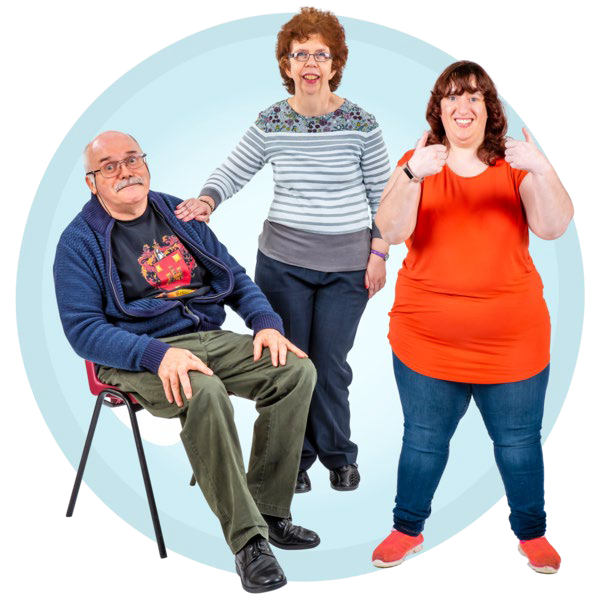
- feeling nila pinoprotektahan nila ang mga taong pinapahalagahan nila
- kailangang sumubok bilang bahagi ng kanilang trabaho
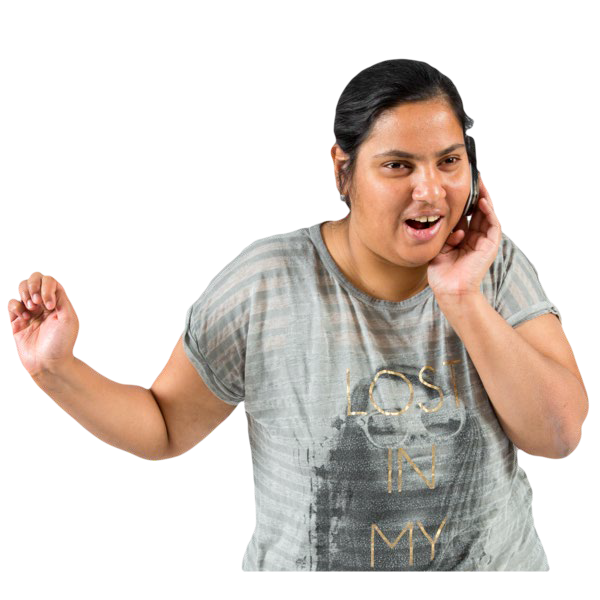
- pagkuha ng tulong mula sa pamilya, mga kaibigan at mga grupo ng komunidad
- gustong bumalik sa "normal na buhay" sa lalong madaling panahon
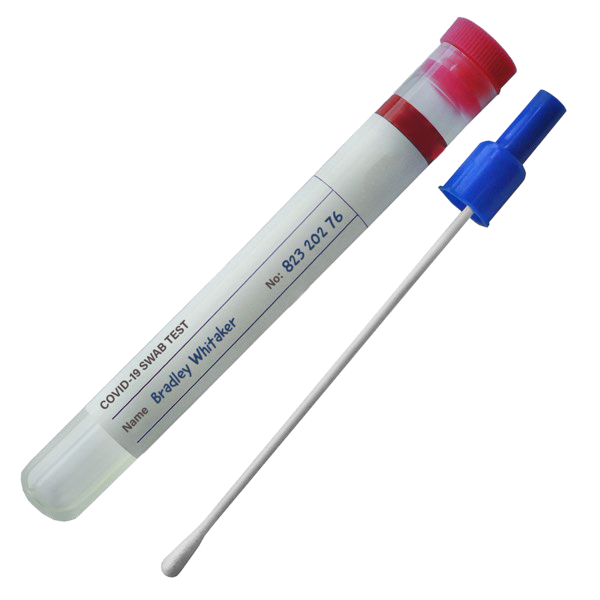
- nabawasan ang kanilang pag-aalala
- madaling makakuha ng mga libreng pagsusulit
Ano ang huminto sa pagsubok at paghihiwalay ng mga tao?

- hindi nagtitiwala sa proseso ng pagsubok at pagsubaybay
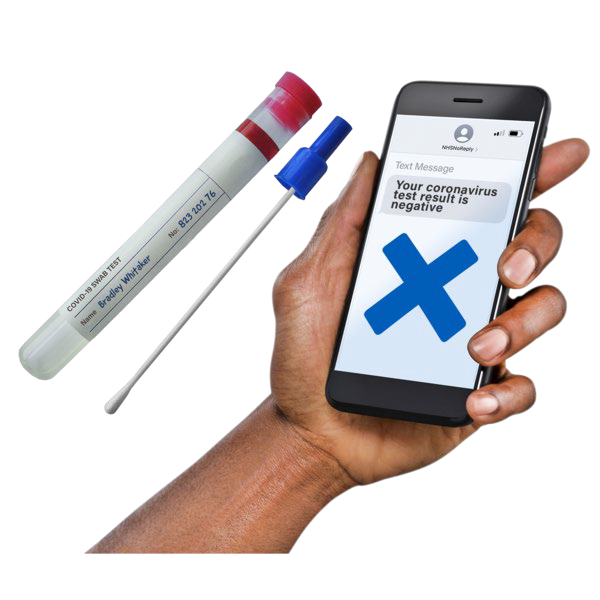
- nilabag ng mga pulitiko ang mga patakaran

- Masyadong kumplikado ang mga pagsubok sa pag-book
- mahirap matutong gumamit ng mga pagsusulit

- ang mga pagsubok ay nadama na hindi komportable

- pagkawala ng kalayaan kapag nagbubukod sa sarili
- walang suporta mula sa pamilya o mga kaibigan
Mga multa

May mga taong binigay nakapirming mga abiso sa parusa kung nilabag nila ang mga patakaran.
Nangangahulugan ito na kailangan nilang magbayad ng pera na tinatawag na a ayos lang.

- ilang tao ang nagsabi sa amin na dahil sa mga multa, gusto nilang sundin ang mga patakaran
- inisip ng ilang tao na dapat ay mas malaki ang multa
- inisip ng ilang tao na walang pinagkaiba ang mga multa

- nag-aalala ang mga imigrante na maaaring maapektuhan ng multa ang kanilang aplikasyon para manirahan sa bansang ito
Mga karanasan ng mga grupo ng tao

- Mga magulang
Ang ilang mga tao ay nagsabi sa amin na ang pagsubok sa mga bata ay mahirap, lalo na kung sila ay may autism, ADHD o iba pang mga pangangailangan.

Ang pagsubok sa napakaliit na mga bata ay maaari ding maging lubhang nakababalisa.
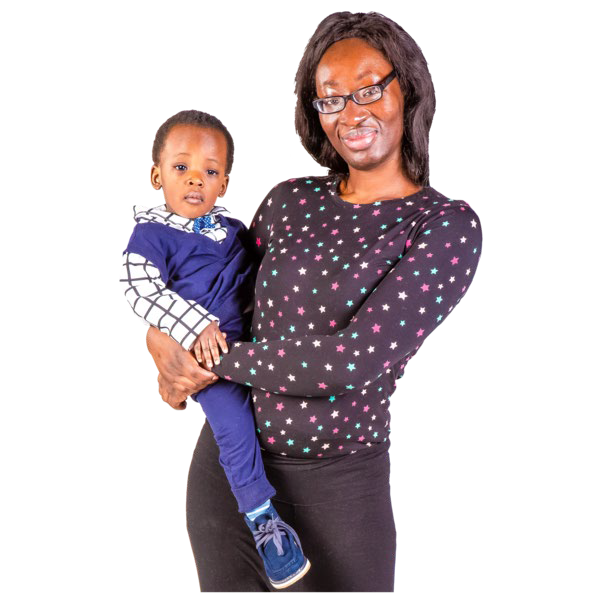
Ang pagbubukod sa sarili kasama ang mga bata ay napakahirap.

- Yung mga tumulong sa matatanda
Ang mga taong may arthritis o nanginginig na mga kamay ay nangangailangan ng tulong sa paggawa ng mga pagsusuri.

Ang mga pagsusulit ay maaaring idinisenyo upang maging mas madali para sa mga taong ito.

Ang pagsubok sa mga taong may demensya ay napakahirap. Minsan hindi nila naiintindihan kung para saan ang pagsubok.

- Mga bingi at may kapansanan
Ang ilan sa mga sentro ng pagsubok ay hindi naa-access.
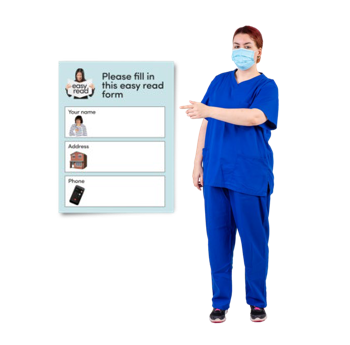
Ang mga tagubilin sa test kit ay hindi naa-access para sa lahat.
Ang ilang mga testing center ay may matulunging kawani at impormasyong Madaling Basahin.

Naapektuhan ang mga bingi o may kapansanan kapag nagsara ang mga organisasyon ng komunidad.

- Mga biktima ng pang-aabuso sa tahanan
Ang ilang mga tao ay nakaramdam ng pressure ng kanilang kapareha na sundin o hindi sundin ang mga patakaran.

- Mga taong nahihirapang magbasa
Ang mga tao ay nangangailangan ng tulong upang maunawaan kung paano gamitin ang mga test kit, at kung paano mag-book ng mga pagsusulit online.

Nataranta at nababalisa ang mga tao tungkol sa paggamit ng mga tracing app.
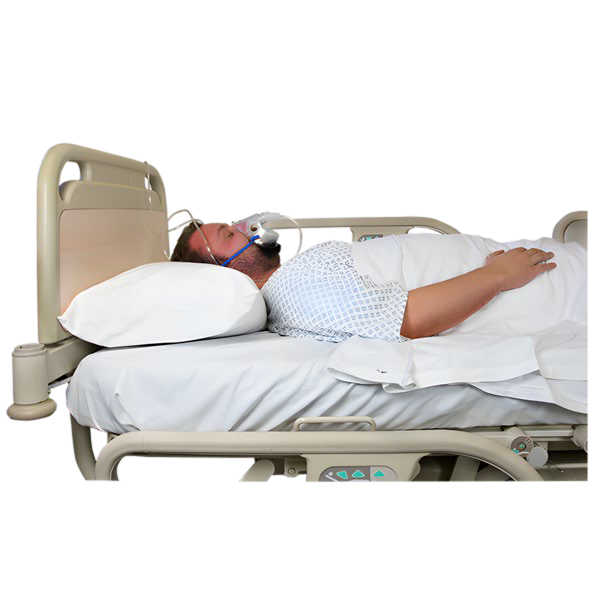
- Mga taong nawalan ng mahal sa buhay
Napakahirap na ihiwalay ang sarili kapag ang mga tao ay may kaibigan o kamag-anak na namamatay sa ospital.

Kapag namatay ang isang mahal sa buhay, ang mga tao ay hindi maaaring makipagkita sa mga kaibigan at pamilya para sa suporta. Ito ay lubhang mahirap.
Mga ideya para sa hinaharap

Gawing malinaw ang mga panuntunan. Huwag mo silang baguhin. Tulungan ang mga tao na maunawaan kung bakit kailangan ang mga patakaran.
Gawing pareho ang mga panuntunan sa England, Scotland, Wales at Northern Ireland.

Ang mga pinuno ng komunidad ay maaaring tumulong sa pagsasabi sa mga lokal na tao tungkol sa mga patakaran at paghihigpit.

Mag-alok ng higit pang suporta. Halimbawa, para sa:
- kalusugan ng isip
- pera
- mga taong hindi gumagamit ng computer
- mga taong nakatira sa mga rural na lugar
Higit pang impormasyon
Mag-download ng buong bersyon ng record dito:
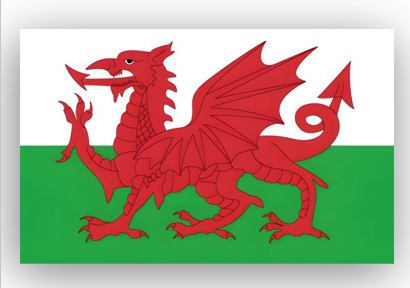
Maaari kang humingi ng maikling bersyon ng record sa ibang mga format:
- Ingles
- Welsh

